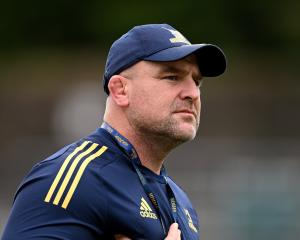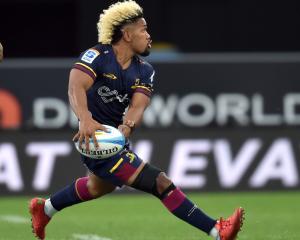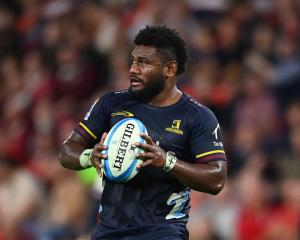The rugby world is prone to conspiring against them on these November tours and the outcome of Adam Thomson's judicial hearing is much bigger than determining the immediate playing fate of a bit-part All Black. It will establish whether there is justice for all or a giant conspiracy to make an example of the All Blacks at any and every given opportunity.
Jarrad Hoeata being put on stand-by is a hint of the lack of faith the All Blacks hold in the process and an indication that they have come to accept they will forever be cast as villains north of the equator.
The pain the Six Nations feel every November at these All Black-inflicted ritual humiliations shouldn't be underestimated. A full house at Twickers is not an ideal place for England to discover how much better the All Blacks really are. The Welsh, for more than a decade, have tried to convince themselves they have discovered a team to dominate for the ages only to be systematically taken apart by New Zealand.
Not since 2002 have the All Blacks lost a November test and that's a statistic that weighs heavily on the northern hemisphere: what's to enjoy about discovering every year that the gap remains enormous?
Every year the All Blacks arrive and play rugby that is smarter, faster and better executed than any European side they encounter. Every year the All Blacks evolve and the perennial game of catch up for the others is maddening.
It's not so fanciful to theorise that the judicial system has been tapped as a means to exact some kind of revenge on the All Blacks - a blunt instrument to wield and inflict some kind of damage.
For some, this is too outlandish to even consider - but the evidence to support it as far stronger than what's available to dismiss it.
In 2009 Wales coach Warren Gatland was indignant about a high tackle committed by Daniel Carter that ultimately had little influence on the outcome of the contest and in the context of the game was significantly less vicious than three other high shots from Welshmen.
But Gatland went off, accused referees of being in awe of the All Blacks and essentially goaded IRB chief executive Mike Miller into proving that wasn't true. Carter was cited and suspended in an outrageous charade of a hearing.
The following year England hooker Dylan Hartley took lumps out of Richie McCaw off the ball in what was obviously an intended and malicious attack. He wasn't cited, yet Keven Mealamu copped a four-week ban - reduced to two - for a poorly executed cleanout of Lewis Moody.
And then there has been the endless lame sanctions imposed on the disturbingly long list of players for assaulting McCaw - the worst being Dean Greyling's one-test ban this year for almost breaking the skipper's jaw.
Much rests, in terms of creating a perception, on the outcome of the Thomson hearing. His footwork was needless, undeniably worthy of punishment but more for its stupidity than its intention. It was hardly malicious. There was no conviction, no commitment to the act and could anyone, given the precedents set elsewhere, really argue it was worthy of more than a one-game suspension as penance?
The outcome will be fascinating and potentially more damaging to Italy, Wales and England as the last thing they need is to encounter an All Black side with better skills and better motivation.
- By Gregor Paul of the Herald on Sunday











